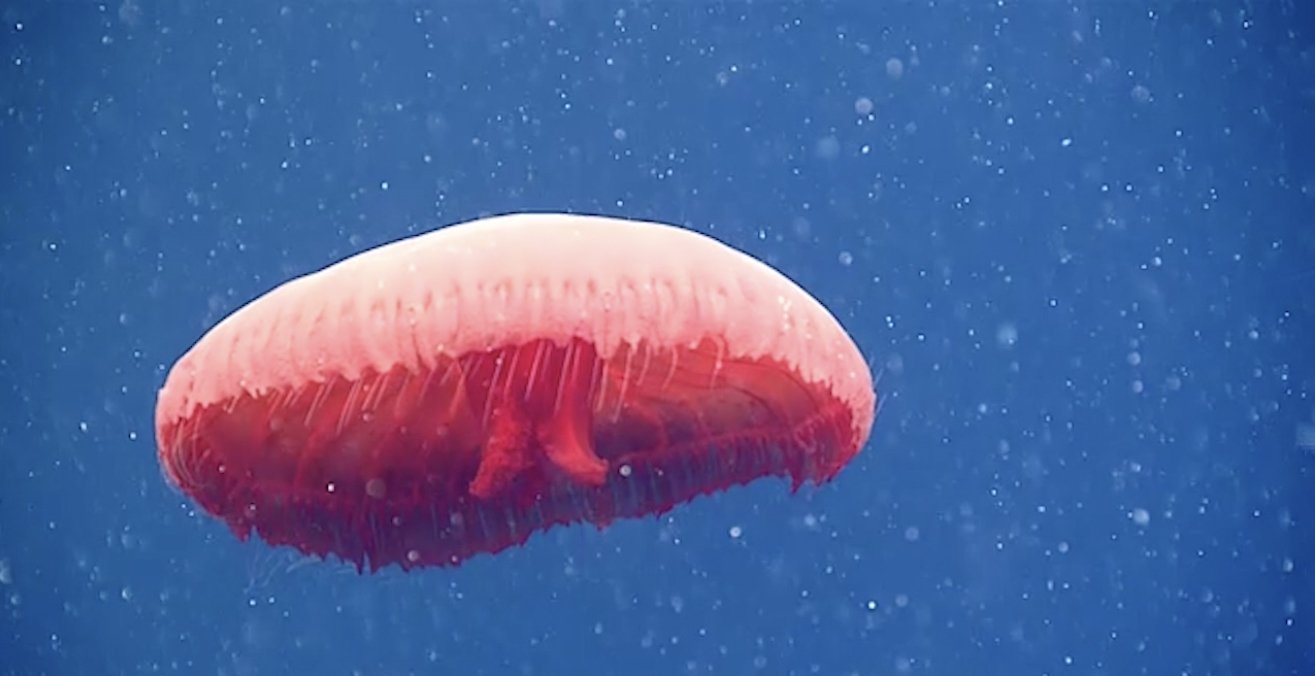© Turkuvaz Haberleşme ve Yayıncılık 2025
Scientists from the National Oceanic and Atmospheric Administration (NOAA) have made a new discovery in the Atlantic Ocean: a new type of jellyfish found 700 meters (2,300 feet) below sea level. The previously unknown and uncategorized creature stands out with its stunning red color.
The red jellyfish is of the Poralia species, which have around 30 tentacles and a fragile structure.
Other than the red-colored jellyfish, the NOAA research revealed the existence of other subaquatic animals that have not yet been recorded.

These unknown creatures were discovered during the 2021 North Atlantic Stepping Stones expedition that began on June 30 and ended on July 29. The researchers traveled along the eastern coast of the U.S., covering hundreds and thousands of meters below sea level.
The NOAA researchers used a remotely operated underwater vehicle (ROV) that can be deployed to depths of up to 4 kilometers (2.5 miles).
Mapping the data gathered from the 25 planned ROV dives will help scientists better understand the diversity and distribution of the deep water habitat, according to a statement from the NOAA.
During the expedition, many creatures including ctenophores, cnidarians, crustaceans and actinopterygii have been observed. In addition to that, unidentified new animal families and potentially new species have been discovered.
“During the diving, along the water column, we observed over 650 individual animals including ctenophores (comb jellies), siphonophores, jellyfish, arrow worms, shrimps, larvae and other types of fish,” the NOAA scientists stated.
